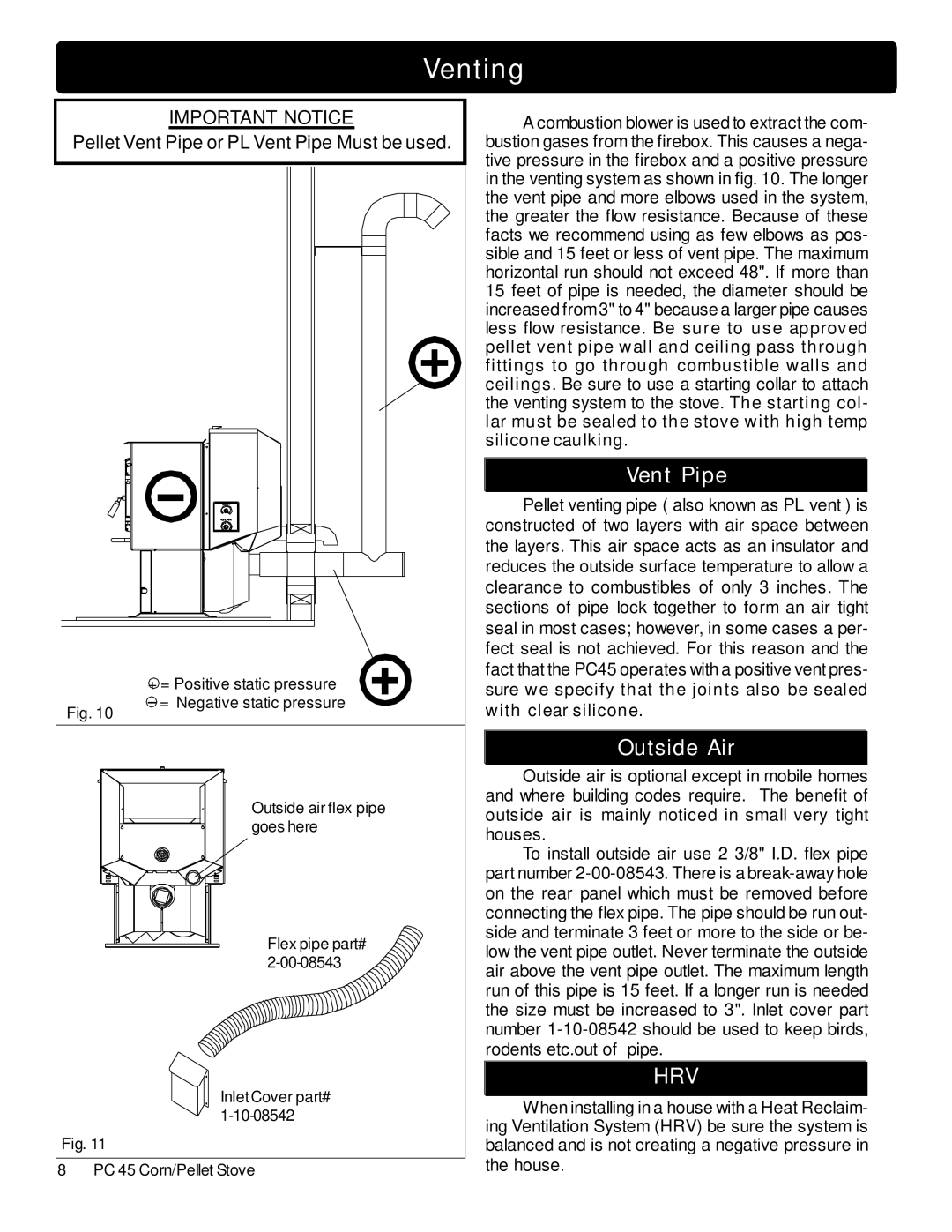
Venting
IMPORTANT NOTICE
Pellet Vent Pipe or PL Vent Pipe Must be used.
A combustion blower is used to extract the com- bustion gases from the firebox. This causes a nega- tive pressure in the firebox and a positive pressure in the venting system as shown in fig. 10. The longer the vent pipe and more elbows used in the system, the greater the flow resistance. Because of these facts we recommend using as few elbows as pos- sible and 15 feet or less of vent pipe. The maximum horizontal run should not exceed 48". If more than 15 feet of pipe is needed, the diameter should be increased from3" to 4" because a larger pipe causes less flow resistance. Be sure to use approved pellet vent pipe wall and ceiling pass through fittings to go through combustible walls and ceilings. Be sure to use a starting collar to attach the venting system to the stove. The starting col- lar must be sealed to the stove with high temp silicone caulking.
Vent Pipe
Fig. 10
Fig. 11
+ = Positive static pressure ![]() = Negative static pressure
= Negative static pressure
Outside air flex pipe goes here
Flex pipe part#
InletCover part#
Pellet venting pipe ( also known as PL vent ) is constructed of two layers with air space between the layers. This air space acts as an insulator and reduces the outside surface temperature to allow a clearance to combustibles of only 3 inches. The sections of pipe lock together to form an air tight seal in most cases; however, in some cases a per- fect seal is not achieved. For this reason and the fact that the PC45 operates with a positive vent pres- sure we specify that the joints also be sealed with clear silicone.
Outside Air
Outside air is optional except in mobile homes and where building codes require. The benefit of outside air is mainly noticed in small very tight houses.
To install outside air use 2 3/8" I.D. flex pipe part number
HRV
When installing in a house with a Heat Reclaim- ing Ventilation System (HRV) be sure the system is balanced and is not creating a negative pressure in
8 PC 45 Corn/Pellet Stove
the house.
